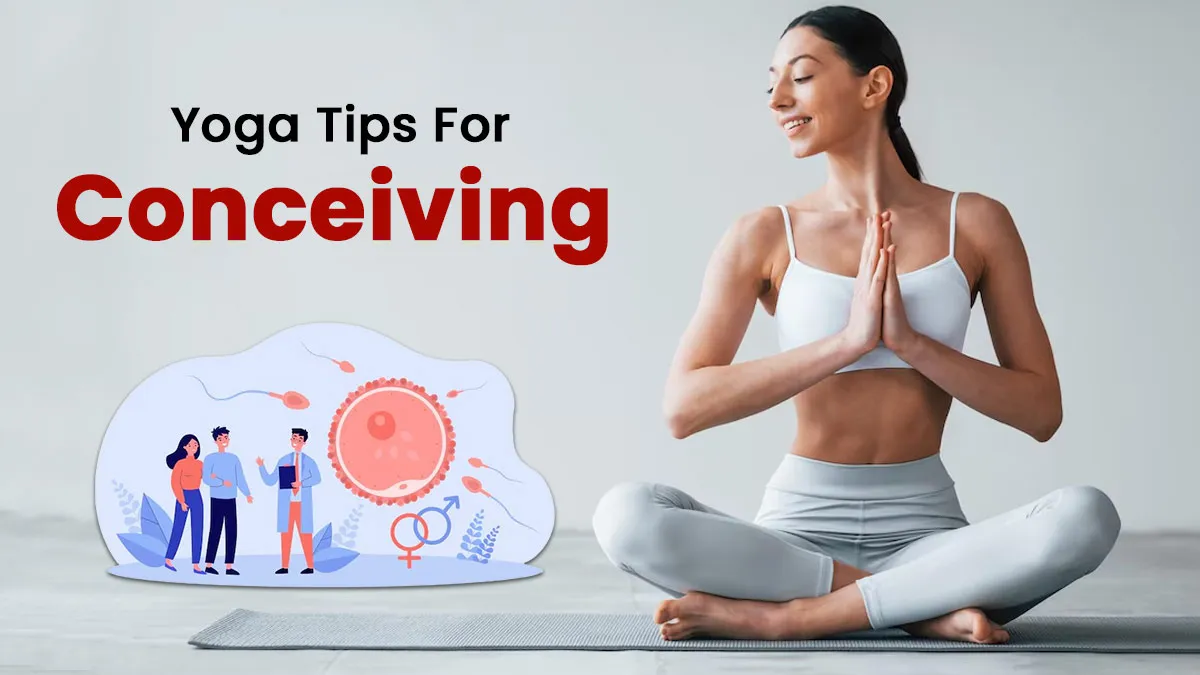
Entering your 30s often brings questions about fertility and conception. Many women feel pressured by societal myths that suggest conceiving becomes drastically harder after 30. While age can play a role, modern holistic approaches highlight that lifestyle choices matter more than numbers. Balancing physical health, mental wellness, and self-care can create a strong foundation for conception.
Table of Content:-
Experts emphasise that stress, poor habits, and hormonal imbalances—not just age—impact fertility. Simple changes like mindful movement, nourishing foods, and emotional balance can boost reproductive health. Read ahead as an expert shared a few yoga practices, herbal remedies, and self-love strategies for smooth conceiving. Whether you’re planning for pregnancy soon or simply preparing your body for the future, these tips offer gentle, natural ways to enhance fertility.
Why Age Isn’t the Enemy For Fertility
View this post on Instagram
Society often paints your 30s as a fertility “deadline,” but this fear is overblown. While egg quality and uterus strength can decline with age, this process isn’t set in stone. Genetics and lifestyle play huge roles. According to Greesha Dhingra, Sadhak, Adhyatma Yog, Gurugram, yoga is a game-changer for women looking to conceive in their 30s.
She explained, “Practising Hatha Yoga, Asanas, Pranayama, and Kriya daily can significantly enhance your reproductive health. These practices improve blood flow to the pelvic region, strengthen the uterus, and even improve egg quality, which tends to decline after 30.”
Here are some yoga poses and practices for fertility

- Balasana (Child’s Pose): This calming pose helps reduce stress and relaxes the pelvic muscles.
- Bhujangasana (Cobra Pose): It strengthens the uterus and improves flexibility in the lower back.
- Nadi Shodhana Pranayama (Alternate Nostril Breathing): This breathing technique balances hormones and reduces anxiety.
- Yoni Mudra: A powerful practice to activate and nourish the reproductive organs.
Greesha added, “Yoga has the power to reverse your age. Those who practice yoga regularly often find that their internal organs function as they did 5-7 years ago. This not only makes conception easier but also ensures a more stable and comfortable pregnancy.”
Yoga isn’t just flexibility. It’s a tool to revitalise your reproductive system. Specific practices improve blood flow, balance hormones, and reduce stress. Here’s what to try:
Hatha Yoga: This gentle style focuses on posture and breathing. It calms the nervous system, which supports hormone balance.
Fertility-Boosting Asanas:
- Butterfly Pose (Baddha Konasana): Opens hips and stimulates ovaries.
- Cobra Pose (Bhujangasana): Strengthens uterine muscles.
- Legs-Up-the-Wall (Viparita Karani): Enhances pelvic circulation.
- Pranayama: Try Nadi Shodhana (alternate nostril breathing) to reduce stress and boost oxygen flow.
- Kriya Practices: Agnisar Kriya (abdominal churning) detoxifies organs and improves digestion.
ALSO READ: Is Abhyanga Safe for Pregnant Women? How To Do This Ayurvedic Massage Therapy the Right Way
Herbs to Boost Hormonal Health
In addition to yoga, Greesha Dhingra highlighted the importance of incorporating fertility-boosting herbs into your routine. She said, “Herbs like Triphala, Ashwagandha, Shatavari, and Hibiscus flowers are known to promote hormonal balance and support reproductive health.”
Here’s how these herbs can help:
- Ashwagandha: Reduces stress and balances hormones, which is crucial for ovulation.
- Shatavari: Known as the “queen of herbs,” it supports uterine health and regulates menstrual cycles.
- Triphala: A detoxifying herb that improves digestion and overall vitality.
- Hibiscus Flowers: Rich in antioxidants, they help maintain healthy estrogen levels.
Greesha advises, “Include these herbs in your diet after consulting with a healthcare professional. They can be consumed as teas, powders, or supplements, depending on your preference.”
Clean and Healthy Eating Habits
Your diet plays a pivotal role in your fertility journey. Greesha emphasised, “Eating clean and healthy is non-negotiable. Focus on whole, nutrient-dense foods that nourish your body and support hormonal balance.”
Here are some dietary tips she recommends:
- Include Healthy Fats: Avocados, nuts, seeds, and olive oil support hormone production.
- Opt for Whole Grains: Brown rice, quinoa, and oats help regulate blood sugar levels.
- Load Up on Antioxidants: Berries, leafy greens, and colourful vegetables protect your eggs from oxidative stress.
- Stay Hydrated: Drink plenty of water and herbal teas to flush out toxins.
Greesha adds, “Avoid processed foods, excessive sugar, and caffeine, as they can disrupt hormonal balance and affect fertility.”
ALSO READ: What Is Mitahar: The 50-25-25 Rule? Tips To Beat Bloating and Gas Issues
Embrace Self-Love and Gentle Treatment
One of the most overlooked aspects of fertility is self-love. Greesha Dhingra explains, “A female body is designed differently than a male body. It requires more care, periodic slowdowns, and gentle treatment. Embracing your feminine energy is key to maintaining reproductive health.”
Here are some self-love strategies she suggests:
- Prioritise Rest: Ensure you get 7-8 hours of sleep every night to allow your body to repair and rejuvenate.
- Practice Mindfulness: Meditation and journaling can help you stay connected with your emotions and reduce stress.
- Set Boundaries: Learn to say no to things that drain your energy and prioritise activities that bring you joy.
- Celebrate Your Body: Instead of being hard on yourself, appreciate your body for all that it does.
Greesha shared, “Don’t let societal pressures dictate your timeline. Choose to become a mother only when you’re fully ready. Until then, focus on taking care of your health and well-being.”
Conclusion
Entering your 30s doesn’t mean fertility is out of reach. Age is just a number, and lifestyle choices matter more. By embracing yoga, nourishing herbs, clean eating, and self-love, you can boost your reproductive health naturally. These holistic practices not only prepare your body for conception but also promote overall well-being. However, it is always recommended to consult a doctor if facing any issue.
Also watch this video
How we keep this article up to date:
We work with experts and keep a close eye on the latest in health and wellness. Whenever there is a new research or helpful information, we update our articles with accurate and useful advice.
Current Version
Feb 10, 2025 10:27 IST
Modified By : Vivek KumarFeb 10, 2025 10:27 IST
Published By : Vivek Kumar